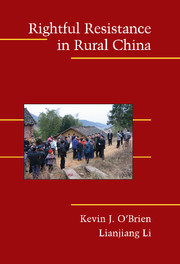Book contents
3 - BOUNDARY-SPANNING CLAIMS
Published online by Cambridge University Press: 05 September 2012
Summary
In studies of popular politics a split exists. Some researchers focus on rather tame and predictable forms of claims making, whereas others become interested mainly when political action spills out onto the streets. For one set of analysts, attention centers on issues related to voting, lobbying, party activity, and various forms of contacting: how, in other words, the popular classes press their demands through approved channels of influence. For the other group, how people react when the authorities are unresponsive and frustration mounts with existing opportunities for expression is of greater concern. Although there are exceptions, insofar as some researchers examine a range of institutionalized and uninstitutionalized acts (Aminzade, 1995; Anderson, 1994; Shi, 1997; Singerman, 1995), the two literatures tend to travel along separate tracks: one spotlighting forms of inclusion and clearly lawful political behavior; the other, consequences of exclusion and actions that are closer to resistance.
In their book Dynamics of Contention, McAdam, Tarrow, and Tilly (2001: 4–7, 305) take a dim view of such divisions. They argue that many episodes of contention belong in a single definitional universe and that there is no need for wholly distinct literatures on topics such as revolution, social movements, elections, and interest group politics. For them, so long as popular action entails episodic collective interaction between the makers of claims and their objects, and a government is involved, similar causal processes and mechanisms are at work.
- Type
- Chapter
- Information
- Rightful Resistance in Rural China , pp. 50 - 66Publisher: Cambridge University PressPrint publication year: 2006

